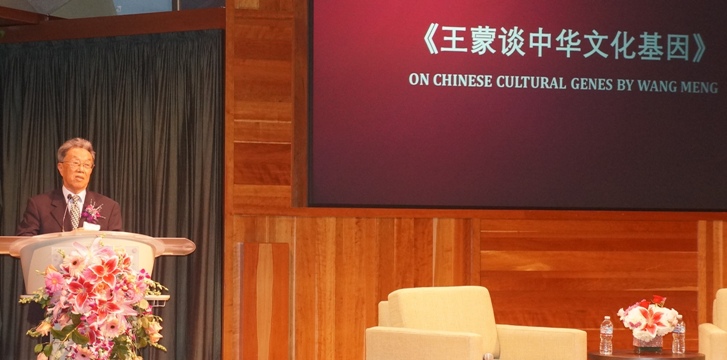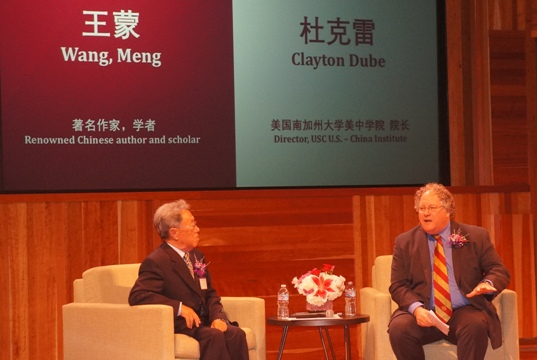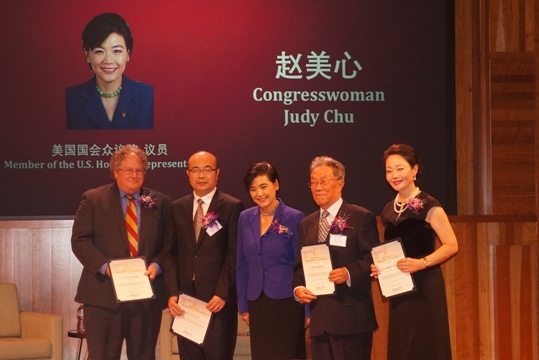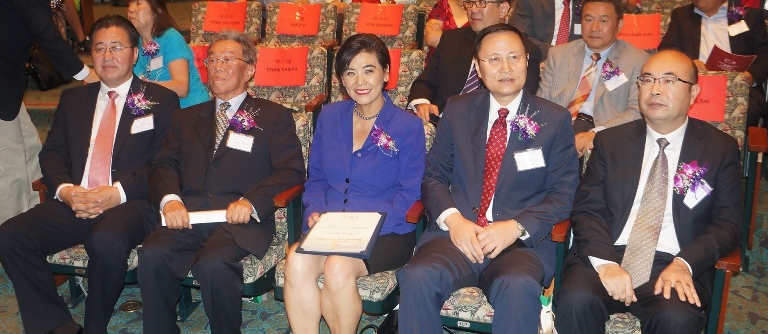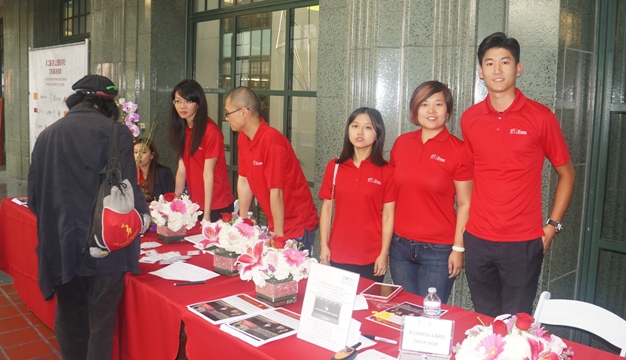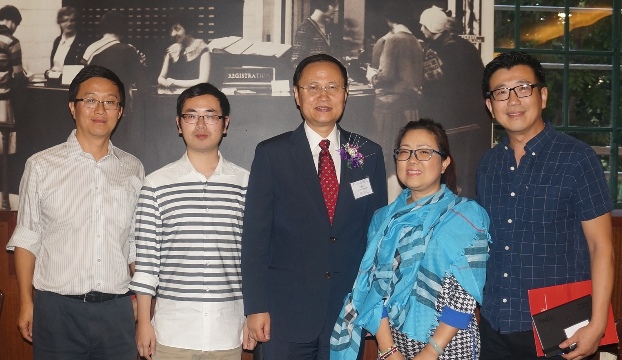Chinese Culture Genes by Meng Wang shows cultural confidence
Hosted by Shandong Publishing Group Limited and Los Angeles Public Library, sponsored by Shandong Friendship Publishing House and Nishan International Publishing House, The Second Nishan International Forum is held at the Los Angeles Public Library on September 10th. The Chinese Cultural genes-themed forum caused both cultural scholars from China and United States having a deep discussion. Meng Wang, the renowned Chinse author and scholar gave a speech about Chinese Cultural Genes.
During the speech, Meng Wang said he is proud of Chinese language. “We won’t have united ancient China and unique Chinese culture, if we don’t have Chinese language. Therefore, we won’t have the way of thinking that the overall value is important”. He mentioned, “Culture, especially Chinses characters, is the religion of China”.
In 1998, he went to Trinity College in Connecticut as an invited researcher. Meng Wang came up with the idea of the diversity of Chinses culture based on a Chinese meal he had in school. For example, the same ingredients can have different taste and colors based on Chinses various way of cooking. He expanded the theme all the way to Confucian culture. Cultural method can be the solution to a problem: One is all, while all is one. It calls for universal harmony. This is “Shangyi”. Chinese culture believes that everything in this world is unpredictable. That is “Shanghua”.
Meng Wang also pointed out that, “Chinses culture had been fell into crisis and anxiety when it faced global industrial civilization. However, it has the spirit of looking for innovation and change. It believes that not to advance is to go back and we have to move with times. It is positive and determined. It emphasizes the idea that everything in the world is related and they work on each other. This is beneficial to the overall layout. It even has the postmodern meaning. Meng Wang took another step to the shared value between Chinses culture and western culture. It shows his highly confidence about Chinse culture.
During the discussion section, Clayton Dube, the Director of USC U.S-China Institute, came up with the question that if traditional Chinses culture and the way of thinking would actually build China’s soft power. Meanwhile, they had a discussion about why human heart is born good in Chinse culture, while evil in western culture.
Also, Clayton Dube doesn’t agree the statement that Chinse people are less competitive than western people. He believes the competitiveness between grade starting from elementary school to college for Chinese. It is much intense than the competitiveness among United States students.
Congresswoman Judy Chu, the vice Chinese consulate in Los Angeles Lushan Sun, the Director of USC U.S-China Institute Clayton Dube, Vice President of Shandong Publishing Group Limited Haitao Guo, President of Shandong Friendship Publishing House, President of American Chinses Education Foundation and almost 300 people attended this forum.
Chinses students from Southern California were wearing red as volunteers. Their kindness and politeness were impressive.
Los Angeles Public Library member, the president of the American Association of Chinses People’s Public Diplomacy Xiangdong Ren, the director of All America Chinese Youth Federation Bingfeng Zhu, Plus Yoou founder Yuan Shi, and Mara Wildlife Conservation Foundation volunteer Xiaoling Cao all attended this forum. They said that all sears are occupied and the interpreter for Meng Wang is very accurate. Through the face to face communication between scholars, audience got the chance to see the wonderful encounter of two different language systems. The Nishan Forum is one of the most significant platform in Southern California. Also, it is a successful case of local public and people-to-people diplomacy.

